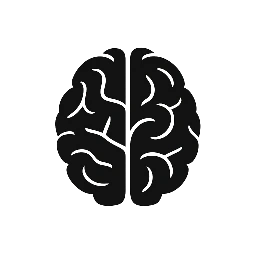
Anxiety is a mental health challenge that affects millions of people worldwide. While occasional anxiety is a normal stress response, chronic anxiety can interfere with daily life, making it essential to develop healthier coping strategies. Building effective coping mechanisms not only helps manage anxiety symptoms but also improves overall well-being and resilience.
Understanding Anxiety
Anxiety is characterised by feelings of worry, nervousness, or fear that are often disproportionate to the actual situation. It can manifest physically through symptoms such as increased heart rate, sweating, and muscle tension, as well as mentally through persistent negative thoughts and difficulty concentrating. Recognising anxiety is the first step toward managing it effectively.
Why Healthy Coping Strategies Matter
Unhealthy coping methods, such as avoidance, substance abuse, or excessive reassurance-seeking, might provide temporary relief but often worsen anxiety over time. In contrast, healthy coping strategies promote emotional regulation, reduce stress, and enhance problem-solving skills, leading to long-term anxiety management.
Some Coping Strategies to Combat Anxiety
- Mindfulness and Meditation
Practising mindfulness involves staying present and fully engaging with the current moment. Meditation techniques, such as focused breathing or guided imagery, can calm the mind and reduce the intensity of anxious thoughts. - Physical Activity
Regular exercise releases endorphins, natural mood elevators, which can decrease anxiety levels. Walking, yoga, or swimming also helps relax muscles and improve sleep quality. - Cognitive Behavioural Techniques
Challenging and reframing negative thought patterns can reduce anxiety. Keeping a thought journal or working with a therapist trained in cognitive-behavioural therapy (CBT) can be beneficial. - Establishing a Routine
Having a structured daily schedule provides a sense of control and predictability, which can alleviate feelings of anxiety. - Social Support
Talking with trusted friends, family members, or support groups can provide emotional comfort and practical advice. - Limiting Stimulants and Alcohol
Reducing intake of caffeine, nicotine, and alcohol can prevent exacerbation of anxiety symptoms. - Deep Breathing Exercises
Techniques such as diaphragmatic breathing activate the body’s relaxation response, helping to lower heart rate and reduce tension.
When to Seek Professional Help
If anxiety significantly impairs functioning or persists despite self-help strategies, consulting a Clinical Psychologist who will assess your symptoms and situation to develop a personalised, evidence-based intervention. Following this type of programme is likely to provide strategies to overcome the present issues, but will also prepare the individual for the longer term to maintain a reduced level of anxiety.
Conclusion
Building healthier coping strategies is crucial for managing anxiety and enhancing quality of life. By incorporating physical activity, cognitive techniques, and social support into daily routines, individuals can develop resilience against anxiety and foster emotional well-being. Remember, managing anxiety is a journey, and seeking help is a sign of strength, not weakness.

Leave a Reply